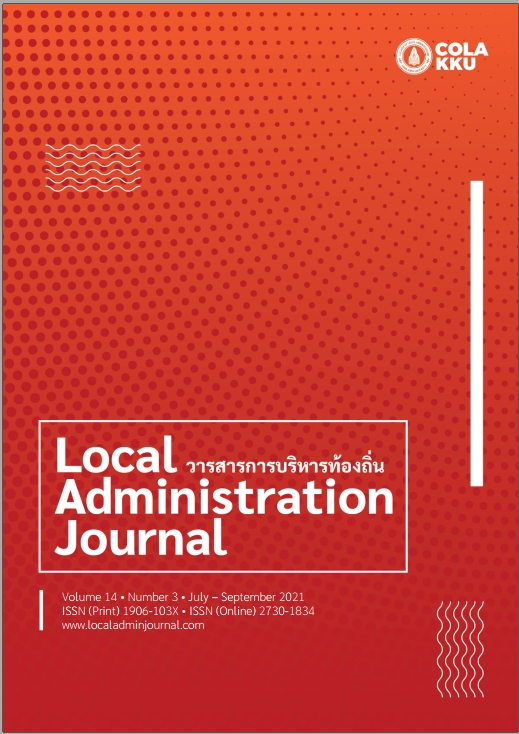The Role of Improved O&OD Methodology in Promoting Social Economy in Tanzania: A Solution to Sustainable Community Social Development Projects?
DOI:
https://doi.org/10.1234/laj.v14i3.253183Keywords:
improved O&OD, social economy, social development projects, sustainabilityAbstract
This study uses Participatory Local Social Development (PLSD) to assess whether Improved Opportunities & Obstacles to Development (O&OD) is an effective methodology for promoting sustainable social economy in Tanzania. The study was conducted at Maseyu village in the Morogoro region of Tanzania. A case study design was applied whereby data were collected through observation and interviews and analyzed using content analysis approach. The results revealed that improved O&OD can be an answer to community social development projects sustainability in Tanzania. This is a prerequisite of anticipated social economy if communities change their current mindset of “waiting for the government/development partners to do for them” to “start doing by themselves”. The study recommends communities use the Ward Facilitators (WFs) and Community Facilitators (CFs) proposed by the Improved O&OD Guidelines as a tool to change people’s mindsets to ensure that they plan, implement, and sustain self-initiated projects.
References
Argaw, D, Fanthahun, M. & Berhane, Y. (2007). Sustainability and factors affecting the success of community-based reproductive health programs in rural Northwest Ethiopia: Original research article. African Journal of Reproductive Health, (11), 79–88.
Bowling, A. (2014). Research methods in health: investigating health and health services. United Kingdom: McGraw-Hill Education. 398.
Cooksey, B. & Kikula, I. (2005). When bottom-up meets top-down: The limits of local participation in local government planning in Tanzania. REPOA Special Paper 17. Dar es Salaam: Mkuki na Nyota Publishers.
Espinosa, J.A, Slaughter, S.A, Kraut, R.E., & Herbsleb, J.D. (2007). Familiarity, Complexity, and Team Performance in Geographically Distributed Software Development. Organization Science, 18(4), 613–630.
Fjeldstad. O, Katera, L. & Ngalewa, E. (2010). Planning in Local Government Authorities in Tanzania: Bottom-up Meets Top-down. REPOA brief. No. 10.
Hacker, K., Tendulkar, S.A., Rideout, C., Bhuiya, N., Trinh-Shevrin, C., Savage, C.P & DiGirolamo, A. (2012). Community capacity building and sustainability: Outcomes of community-based participatory research. Prog Community Health Partnersh, 6(3), 349–360.
Mancini, J.A. & Marek, L.I. (2004). Sustaining community-based programs for families. Family Relations, 53(4), 339–347.
Ministry of Finance and Planning. (2016). Second Five Year Development Plan 2016/17-2020/21. URT.1-293.
Ministry of Finance and Planning. (2021). National Five Year Development Plan 2021/22-2025/26. URT. 1-321.
Online library of the Organisation for Economic Cooperation and Development (OECD). (2007). The Social Economy: Building Inclusive Economies. Retrieved from https://doi.org/10.1787/9789264039889-en
Office of the United Nations High Commissioner for Refugees (UNHCR). (2008). A Community-Based Approach in UNHCR Operations. UNHCR: Geneva, Switzerland.
Oino, P.G., Towett, G., Kirui, K.K. & Luvega, C. (2015). The Dilemma in Sustainability of Community-Based Projects in Kenya. Global Journal of Advanced Research, 2(4), 757–768.
Oloyede, O. (2009). Developing Sustainable Communities in Africa: Components for a Framework. Identity, Culture and Politics: An Afro-Asian Dialogue, 10(2), 56–64.
Patton, M.Q., (2015). Qualitative research & evaluation methods: integrating theory and practice, Fourth edition. Ed. SAGE Publications Inc, Thousand Oaks, California.
Payne, G. & Payne, J. (2004). Key Concepts in Social Research. London: Sage Publications.
Prime Minister’s Office – Regional and Local Government (PMO-RALG). (2007). Opportunities and Obstacles to Development: A community participatory planning methodology. (Handbook).
Prime Minister’s Office – Regional and Local Government (PMO-RALG). (2008). The study on improvements of opportunities and obstacles to development planning process. (Final report). Japan International Cooperation Agency (JICA).
Planning Commission. (1995). The Tanzania Development Vision (2025). Retrieved from https://www.mof.go.tz/mofdocs/overarch/vision2025.htm
President's Office, Regional Administration and Local Government Tanzania (PO-RALG). (2001). A Framework for Operationalizing the Community Participatory O&OD Process in Tanzania. Dar es Salaam, mimeo.
President's Office, Regional Administration and Local Government Tanzania (PO-RALG). (2019). Guidelines for Improved Opportunities and Obstacles to Development (O&OD). Retrieved from https://tamisemi.go.tz/storage/app/media/uploaded-files/20191107 %20Guidelines%20English%20PDF.pdf
Rees, G., Huby, G., McDade, L. & McKechnie, L. (2004). Joint working in community mental health teams: Implementation of an integrated care pathway. Health Soc. Care Community, 12, 527–536.
Rubin, Herbert J.; Rubin, Irene S. (2011). Qualitative Interviewing: The Art of Hearing Data. Sage Publications.
Sharma, J & Ohama, Y. (2007). Participatory local social development: An emerging discipline. Barhat Book Centre. Lucknow, India.
United Nations High Commissioner for Refugees (UNHCR). (2008). A community-based approach manual. Office of the United Nations High Commissioner for Refugees. Geneva, Switzerland.
Yin, R. K. (2009). Case study research: Design and method (4th ed.). London: Sage Publications.
Downloads
Published
How to Cite
Issue
Section
License
Copyright (c) 2021 Local Administration Journal

This work is licensed under a Creative Commons Attribution-NonCommercial-NoDerivatives 4.0 International License.
The copyright of all articles published in the Local Administration Journalis owned by the College of Local Administration, Khon Kaen University.



